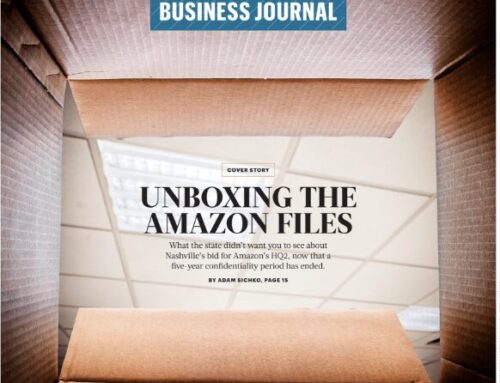Report: Fiscal impact of tax breaks kept confidential
Tom Humphrey reports in his Humphrey on the Hill blog about a report to the state’s Fiscal Review Committee last week that highlights an inability to measure the cost of tax breaks because of a confidentiality exemption regarding tax records.
The exemption, T.C.A. 67-1-1702, makes confidential “returns, tax information and tax administration information” and prevented the committee’s staff from checking on whether cost of a tax break was accurately predicted when legislation creating the tax break passed.
From the blog, “Impact of tax breaks kept confidential“:
The confidentiality granted state Department of Revenue records prevents legislators from learning whether the estimates used in adopting tax credit legislation are accurate, the executive director of the Fiscal Review Committee told lawmakers last week.
Krista Lee’s comments came in an annual report by committee staff to the watchdog panel, which is charged with overseeing the effectiveness of state spending in general, on whether the estimates on the cost of legislation presented at the time a bill passes — they’re called “fiscal notes” — prove true after a review in later years.
One of the bills reviewed was enacted in 2012, sponsored by Sen. Mike Bell, R-Riceville, and then-Rep. Eric Watson, R-Cleveland. Now recorded as Public Chapter 937 of 2012, it granted a tax credit of 1.75 percent on investments in an “environmental project” that exceed $100 million — provided the corporation taking the credit agreed to forego taking a separate tax credit for job creation.
At the time, Fiscal Review staff accepted a Department of Revenue estimate that the new law would cost the state $12.5 million, spread over a seven-year period, but save the same amount over the period because the company or companies would be foregoing the jobs credit tax break.
“It seemed odd,” Lee told the committee, that legislation would be needed for something that was “a complete wash” for both the state and the company or companies involved. So the staff picked the bill as one to review on the outcome three years later.
“What we found is, we still don’t know,” she said, though it appears “one or more” companies took advantage of the law.
Because taxpayer information is kept confidential under a separate state law, Lee said, the Department of Revenue declined to identify the company or companies using the law or provide any information on what has happened since it was put into place.
Responding to questions from Rep. Johnny Shaw, D-Bolivar, Lee declined to suggest a way to get around the problem, though expressing hope that “some resolution” could be found that would avoid putting the Department of Revenue in “a bad situation” while still informing legislators — and residents. One notion floated otherwise is to allow disclosure to Fiscal Review staff, provided that they are also bound by the same confidentiality restrictions imposed on Revenue staff insofar as identifying a taxpayer goes.
The interpretation of the exemption is also at issue in an unrelated effort that resulted in a public records lawsuit against the state this year: Brett R. Carter vs Larry Martin, in his official capacity as Commissioner of the Department of Finance and Administration.
In that case, Carter, a tax attorney, sued for the release of a $350,000 study of business tax collections that was used by the Haslam administration as a basis to change tax laws this spring with the Revenue Modernization Act.
After an in camera inspection of the records in question, Chancellor Carol McCoy found that the records requested constituted tax administration information as that term is defined in T.C.A. 67-1-1701(7) and were confidential pursuant to T.C.A. 67-1-1702. McCoy dismissed the petition for access. Carter appealed the decision and oral arguments are scheduled before the Court of Appeals in Nashville for Jan. 29. Read that brief here: Carter v. Martin appellate brief.
Here is the exemption:
67-1-1702. Confidentiality.
(a) Notwithstanding any law to the contrary, returns, tax information and tax administration information shall be confidential and, except as authorized by this part, no officer or employee of the department or of any office of a district attorney general or any state or local law enforcement agency, and no other person, or officer or employee of the state, who has or had access to such information shall disclose any such information obtained by such officer or employee in any manner in connection with such officer’s or employee’s service as an officer or employee, or obtained pursuant to this part, or obtained otherwise.




